Animal Rights Activists Disrupt Foie Gras Tasting Event at David Burke Tavern
The News
Animal rights activists with PETA and Humane Long Island’s Duck Defenders project disrupted a foie gras tasting event at David Burke Tavern, an American restaurant on the Upper East Side of New York. The owner, David Burke, dubbed the $250 per person event “FoieGone,” a reference to the upcoming ban on the sale of the fatty liver product in New York City.
The activists chanted “David Burke has Blood on His Hands” and “Foie Gras is Animal Cruelty” while walking through the restaurant and halfway up the stairs, where restaurant employees blocked their passage. While some patrons were disturbed by the protest, several asked questions during the disruption and expressed their support of the message as they exited the restaurant. (Activists suspect that the individuals who expressed their support did not partake in the foie gras tasting event, which was held in one section of the restaurant).
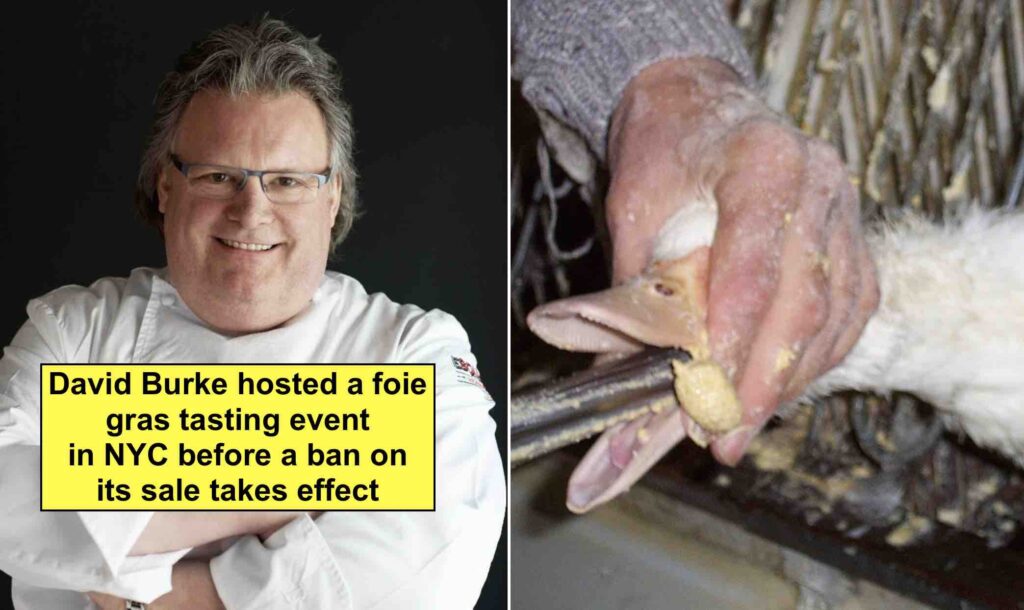
Animal rights activists protested a $250/person foie gras tasting event hosted by David Burke at David Burke Tavern in NYC
Foie gras, or fatty liver, is produced by inserting pipes down the throats of geese and ducks and force feeding them until their livers expand to ten times their normal size. The ducks and geese, who are aquatic animals, spend their lives inside of factory farms.
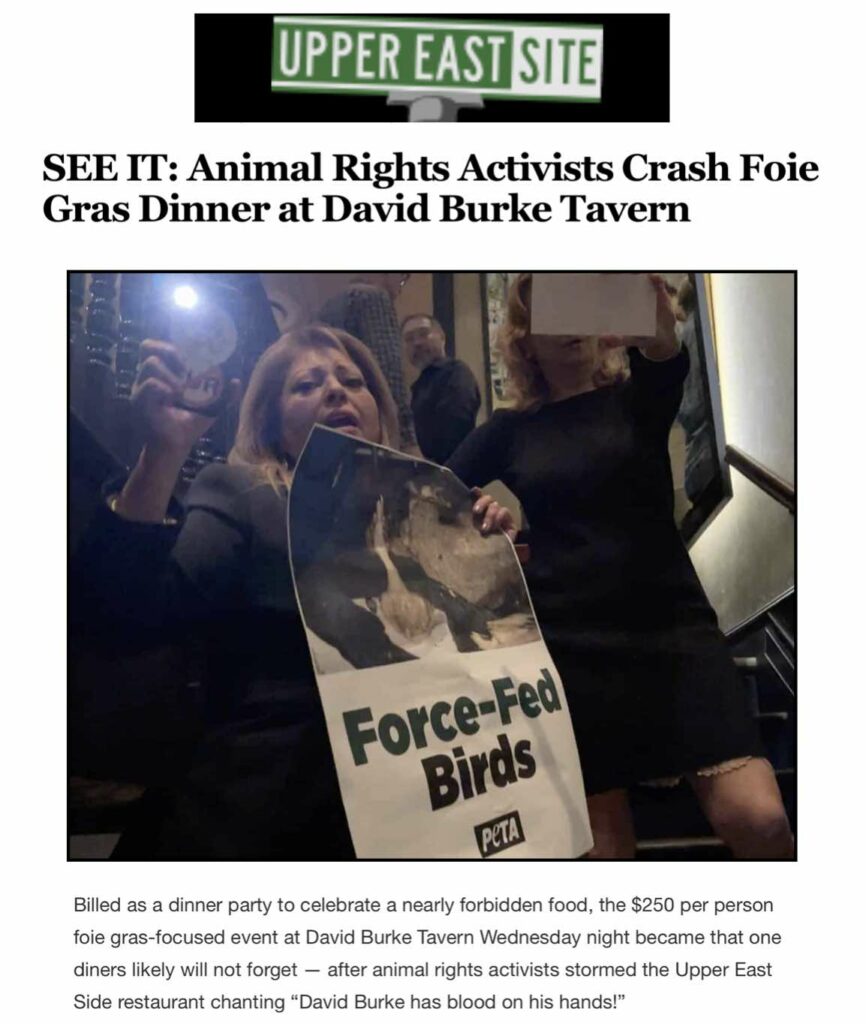
A neighborhood media outlet reported on the foie gras protest at David Burke Tavern, an Upper East Side restaurant that hosted a foie gras tasting event
In 2019, New York City lawmakers voted to ban the sale of foie gras. At the time, an estimated 1,000 restaurants sold foie gras in New York City, according to the NY Times. The bill was passed and signed into law despite criticism from prominent chefs and the media. The historic foie gras bill would not have been introduced, much less passed, by the City Council, were it not for a two year campaign waged by Voters for Animal Rights (VFAR), a group that advocates for animal rights legislation in NYC. With the support of hundreds of grass roots animal rights activists, VFAR partnered with animal rights groups, veterinarians, and restaurants to create a coalition of supporters who lobbied City Council members and educated the public about the cruelty associated with foie gras production.
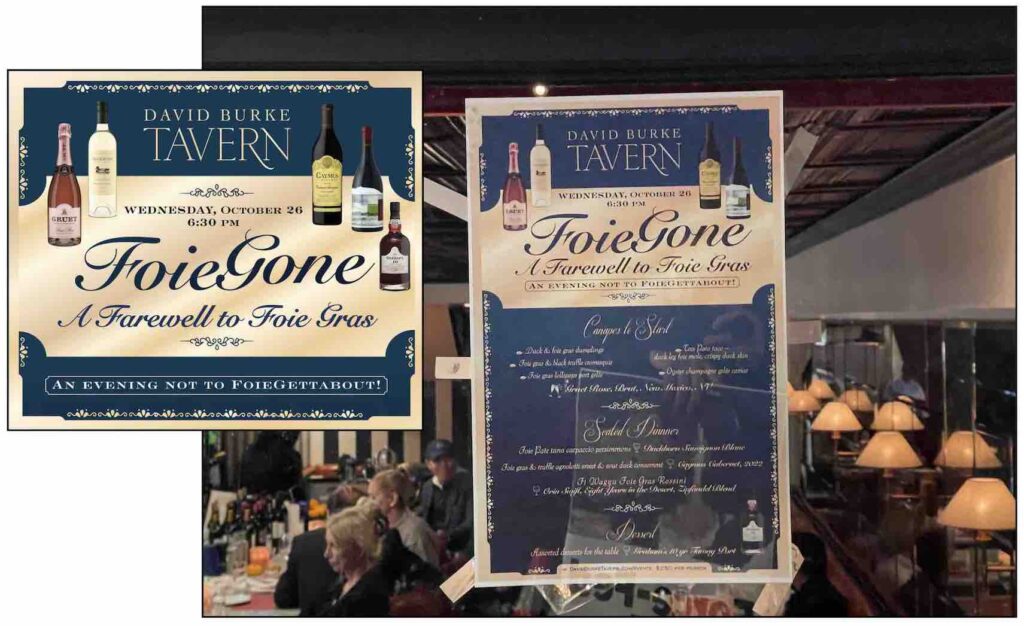
David Burke Tavern hosted a $250/person foie gras tasting menu in advance of a ban on the sale of foie gras in NYC.
The ban of the sale of foie gras was supposed to take effect on November 25th, 2022. On September 15th, a New York State Supreme Court judge issued an injunction, ruling that La Belle Farm and Hudson Valley Foie Gras can continue to sell the fatty livers to NYC restaurants while the case makes its way through the judicial system. The foie gras producers sued the city, citing economic hardship and claiming that the City Council exceeded its authority by making law about farming practices outside the city.
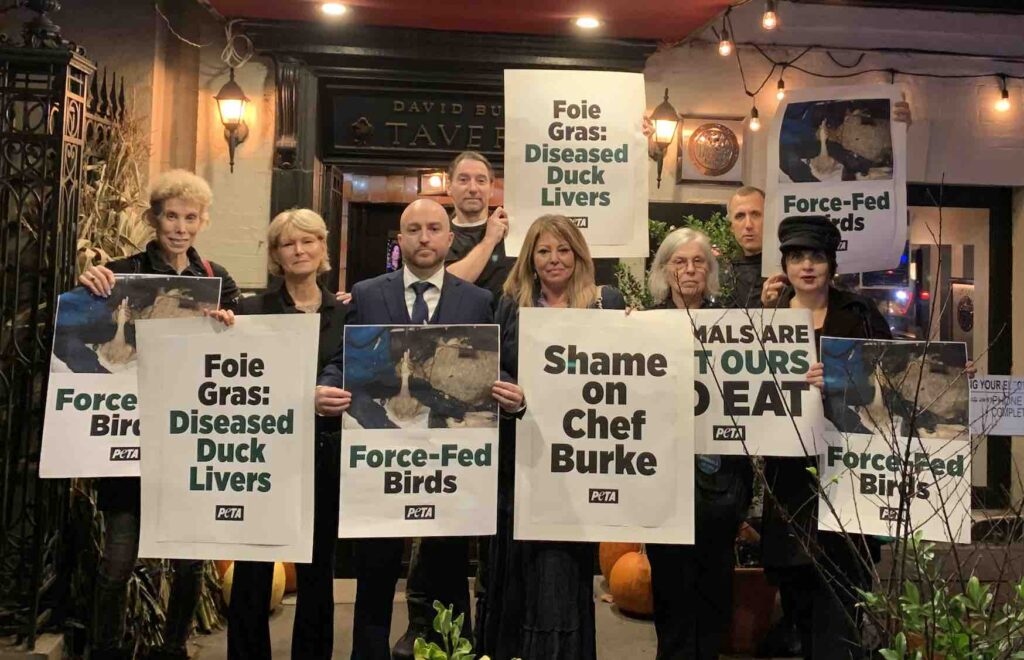
Animal rights activists with PETA and Humane Long Island (aka Duck Defenders) protested a foie gras tasting event at David Burke Tavern in NYC
If the courts overturn the law banning on the sale of foie gras, animal rights groups will continue to protest the restaurants that sell it until they remove the “delicacy of despair” from their menus.
Filed under: Food
Tagged with: foie gras, Hudson Valley Foie Gras



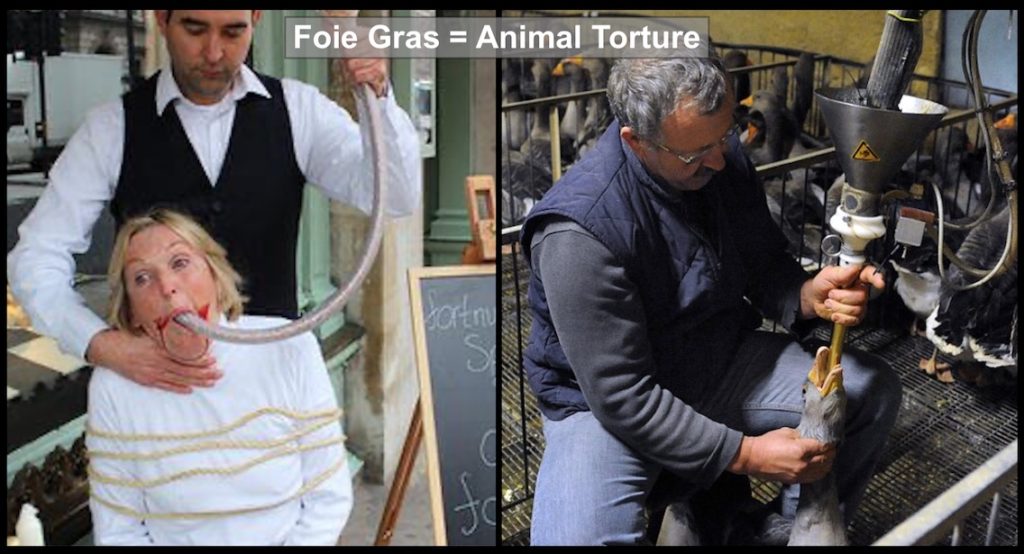
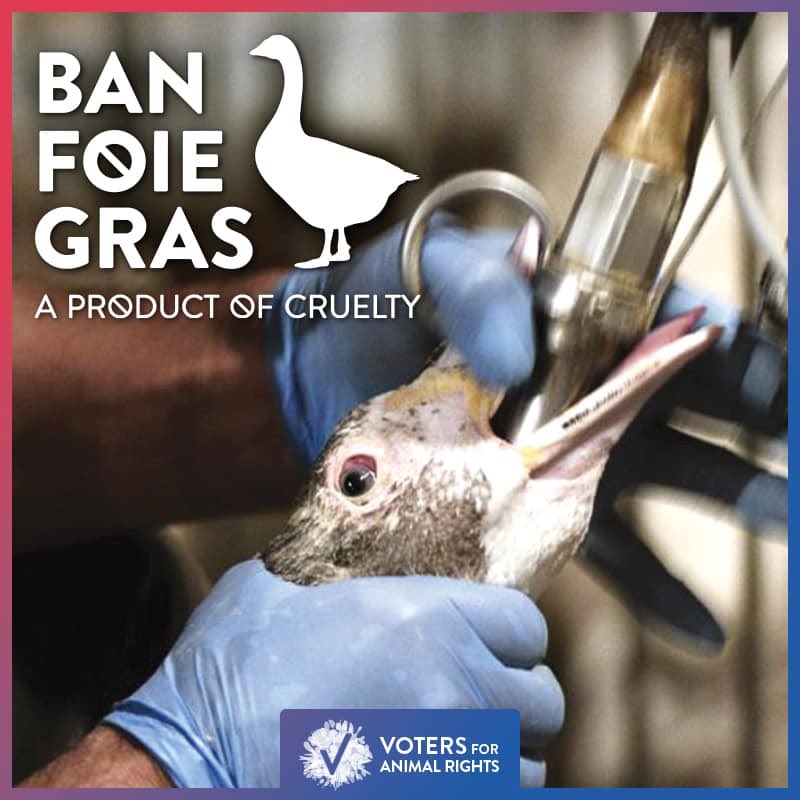
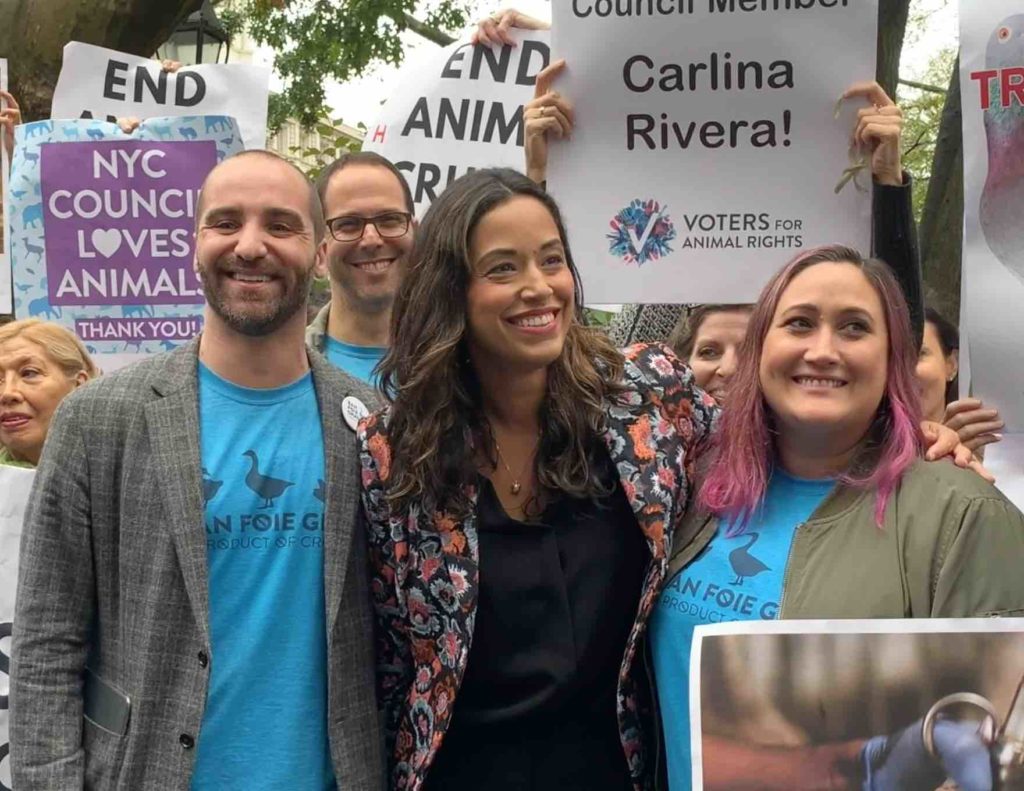
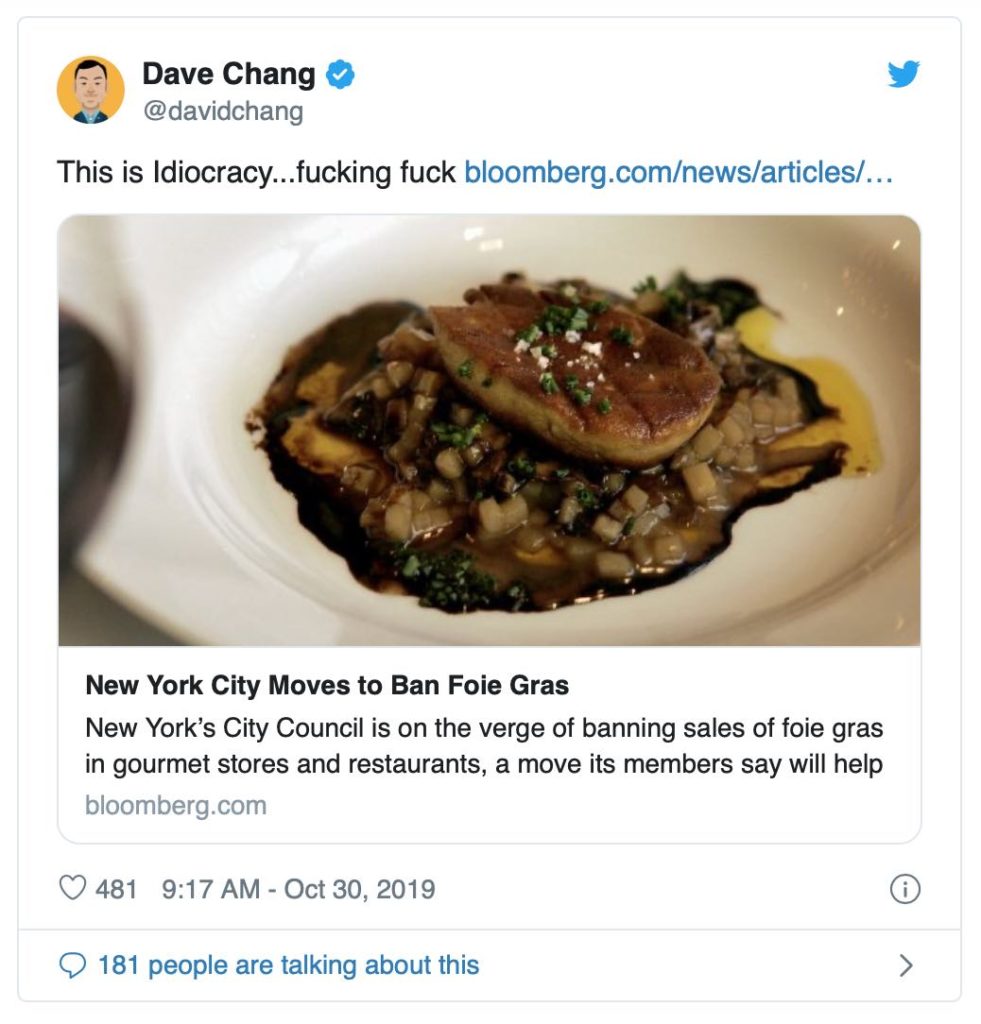
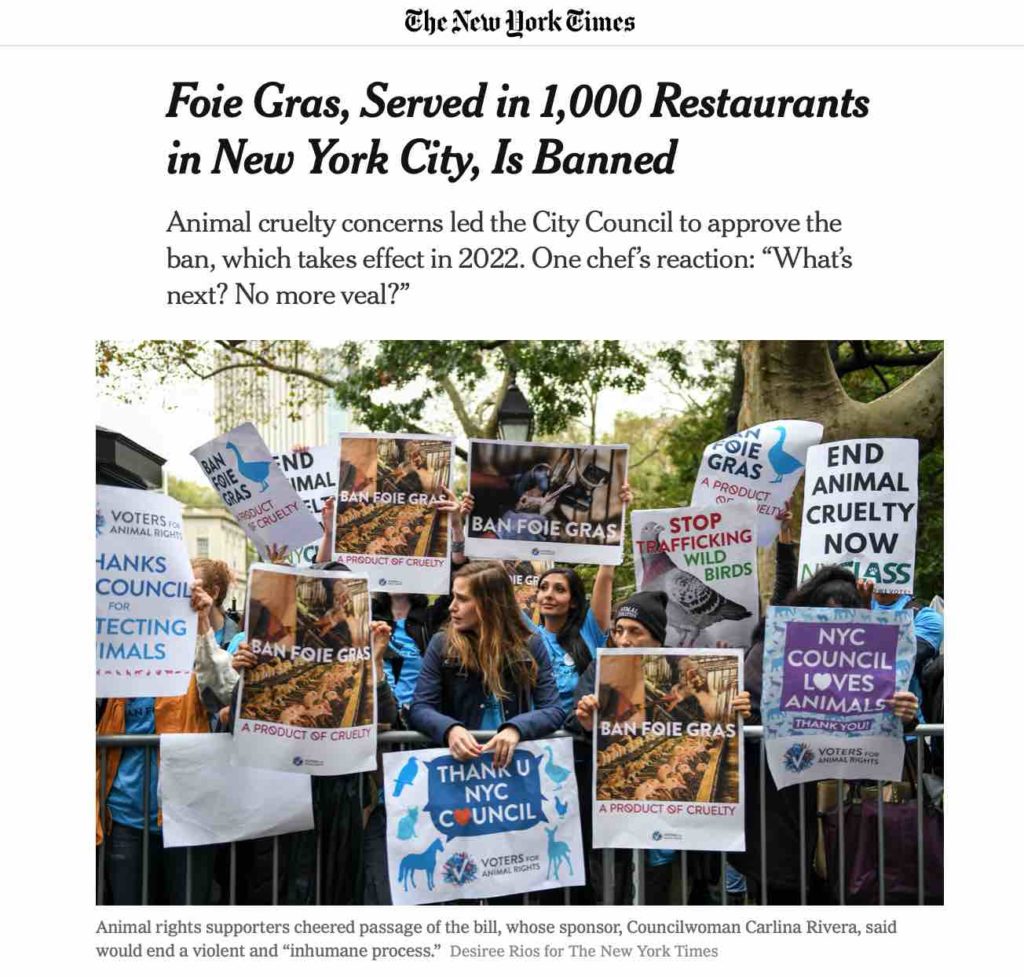
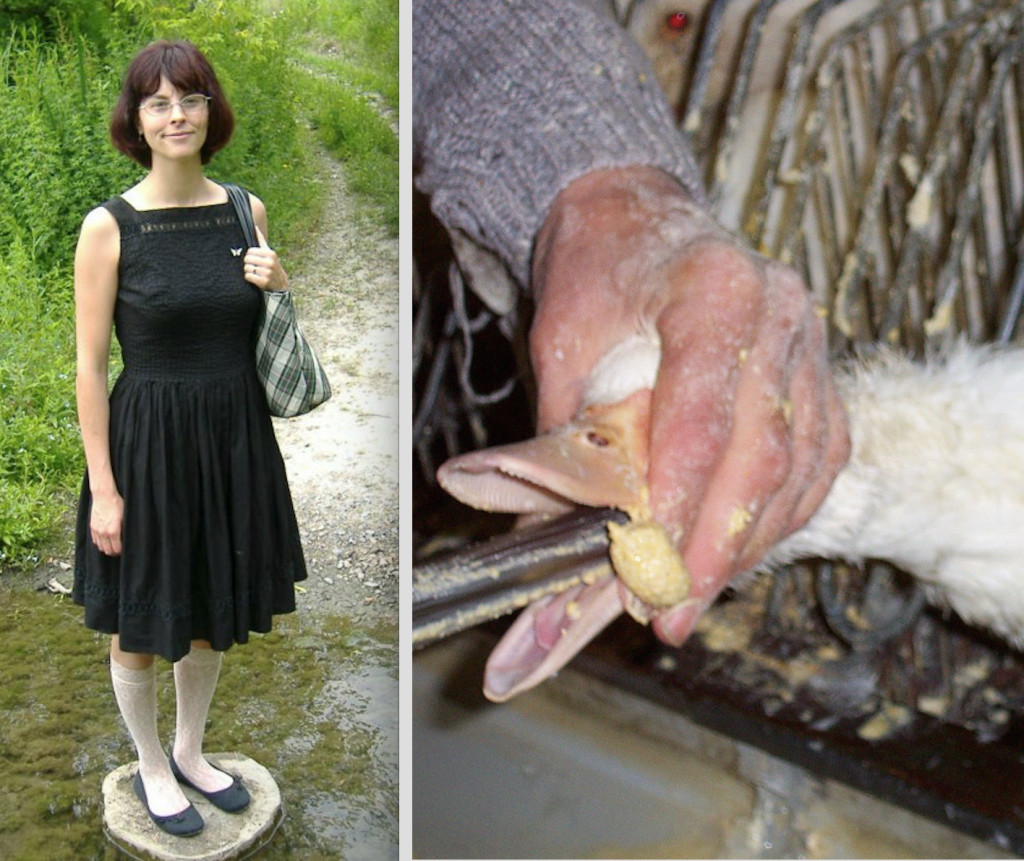
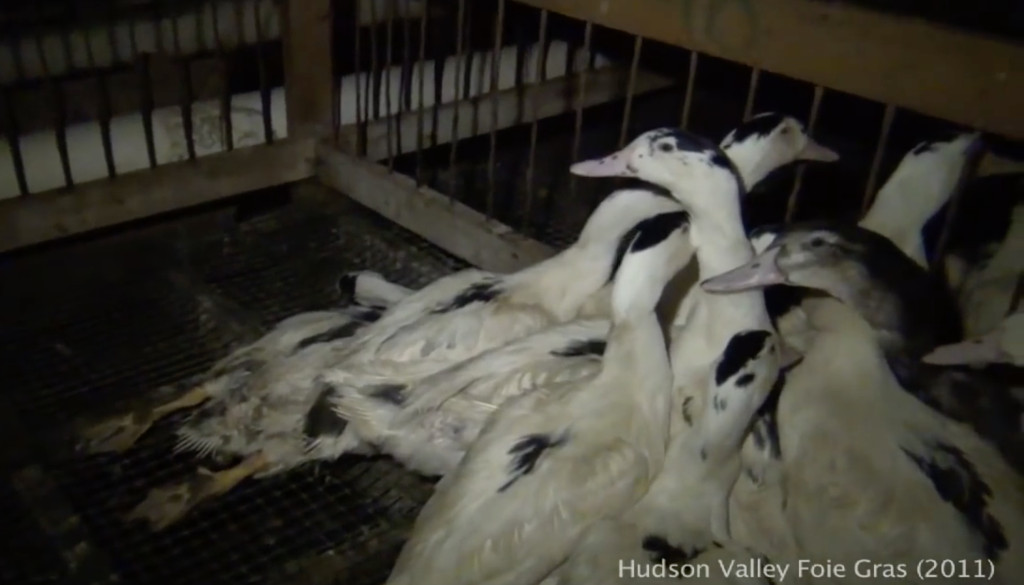
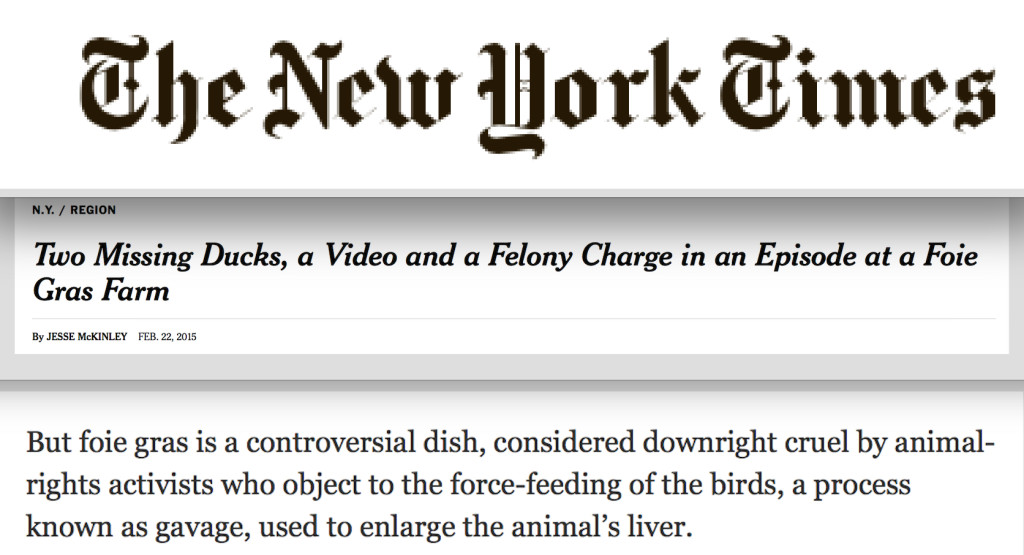
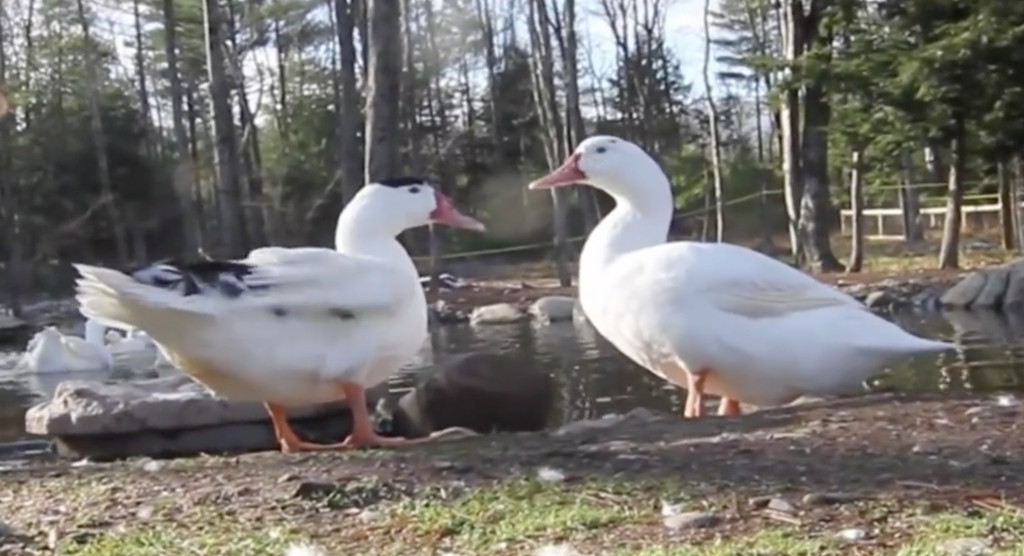
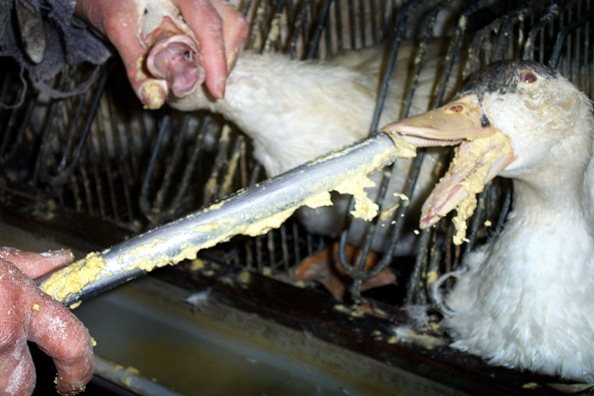
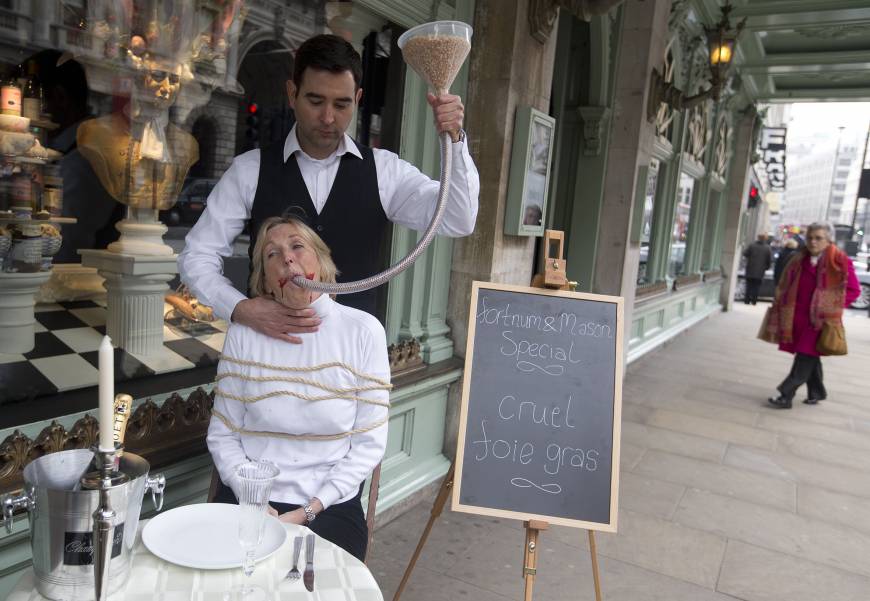
Follow Their Turn